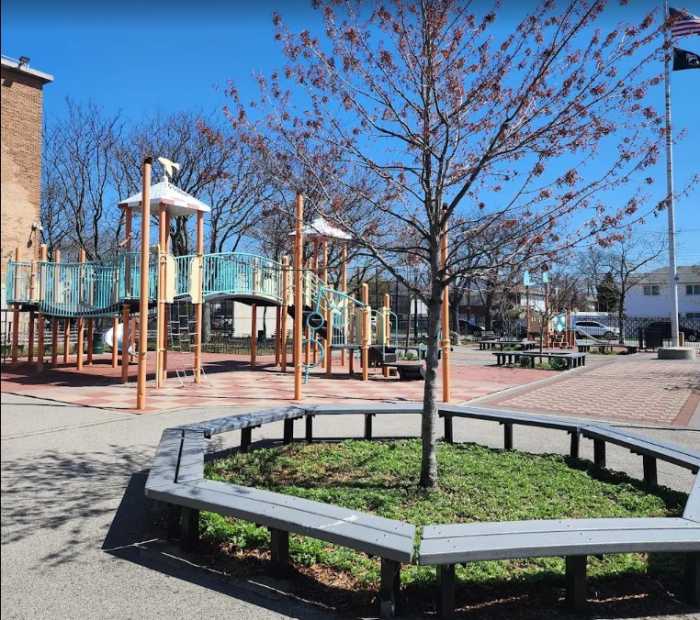By Joan Brown Wettingfeld
The recent television special highlighting the life of author Mark Twain brought to mind his meeting with the self-styled “Farmer Poet” of Long Island, Bloodgood Haviland Cutter. The two were fated to meet on an ocean voyage. Cutter was to boast of this for the rest of his life.
When Mark Twain wrote of his foreign travels in “The Innocents Abroad” it was an instant success and brought him fame as a writer, not only as a journalist. Often bitingly satirical, the famous author had much to say about L.I. “Farmer-Poet” Bloodgood Cutter who was a fellow passenger on board the modern and comfortable steamer Quaker City. This was to be the first pleasure cruise in the modern sense — the first, at least, to sail from an American port. The voyage was to last five months and had an ambitious itinerary including stops as far distant as Gibraltar and Beirut and including overland excursions to Paris, through Italy, across the Holy Land to the pyramids.
It was rumored that the famed preacher Henry Ward Beecher and Gen. William Tecumseh Sherman, the hero of the Civil War, and other celebrities would be on board. As it turned out, Twain was the ship’s only celebrity and was given the cabin reserved for Gen. Sherman when the general did not board. The price for passage presupposes a select group for it consisted of $1,250 in gold and another $750 for land excursions. This at a time when a round-trip passage to Europe averaged $200.
Twain went aboard as a journalist for the newspaper Alte California and he was given carte blanche to write what he pleased. The assignment fitted his mood at the time and many of his later books would be related to the framework of that journey.
Travel to Europe in 1867 heralded a period of a singular national movement. The post-war prosperity and era of peace made tourism take on significance and was to initiate a trend on a scale never seen before in this country.
Though The Quaker City left on the afternoon of June 8, 1867, it was forced to anchor in the lower bay for two days waiting for calmer seas. It was during this time that Twain began to study his fellow passengers. Among them was the compulsive Cutter, who continuously insisted on reciting his own verses.
Though considered a wealthy man by the standards of the day, Cutter hoped to earn free passage as the expedition’s poet. He was wont to distribute his verses all printed on slips of paper engraved with his own portrait to anyone and everyone within range.
Moved to verse at the slightest provocation (he was said to have spoken in verse) he composed several poems by the time the ship reached the Azores, including “The Good Ship Quaker City,” “Ode to the Ocean” and “Recollections of the Pleasant Time on Deck Last Night.” As Twain observed, “which pleasant time consisted of his reciting some 75 stanzas of his poetry to a captive audience on the upper deck.”
Bloodgood Cutter was the “Poet Lariat” in Twain’s “Innocents Abroad.” One cannot be sure but the story is that this was derived from a passenger’s mispronunciation of the words “poet laureate.” I have my suspicions that it was more likely attributable to Twain himself.
Known as the “Long Island Farmer Poet,” Cutter was born Aug. 5, 1817, in Little Neck in what was then an unincorporated part of Great Neck in the county of Queens. His mother Mary Bloodgood remarried and the boy was sent to live with his stepfather’s uncle, Roe Haviland, a fairly wealthy farmer whom the youngster called “Grandfather Haviland.” Young Cutter left school at 16 and was put to work on one of Haviland’s coastal schooners, eventually becoming master of one of the ships.
The house where he first lived was known as the Haviland house and stood on Northern Boulevard just east of Cutter Mill Road. In 1840 Cutter eloped with 16-year-old Emeline Allen of Great Neck. Roe Haviland died in 1844 and young Cutter inherited his holdings, the profitable 102-acre farm named Prospect Hill overlooking Little Neck Bay where he built a home.
He had at first attended the District School in Lakeville but had to leave at an early age to assist his grandfather on the family farm. As were many in those days, he was self-taught and educated himself by reading the Bible. When he died a wealthy man he left a great part of his fortune to the Bible Society.
Living the life of a gentleman farmer he had the time to indulge in his muse. He was also shrewd in business in buying and selling property and in the stock market. His penchant for collecting curios and antiques from Long Island and from his many trips to Europe filled his home and these eventually were sold at auction after his death.
Though the public did not always react kindly to his poetry, Bloodgood persisted in writing his verses. The Flushing Journal once wrote of one of his poetry lectures, “Cutter is a shrewd and sensible man in every other respect than that of rhyme, respecting which he is a monomaniac.”
Demeaned and unappreciated for his verse by Mark Twain, Bloodgood Cutter achieved a certain success because of the publicity engendered by Twain’s disdain. However, to those who knew him and to the many country folk of his rural constituency and through his publication in the newspapers of the time, he enjoyed celebrity in their eyes and was remembered as a kind and generous citizen of his time albeit a trifle eccentric.
Joan Brown Wettingfeld is a historian, free-lance writer and a member of the Borough President’s History Advisory Committee. Reach her by e-mail at JBBAY@aol.com or visit her on the Web at members.aol.com/tmpnyc/bayside.htm.




































